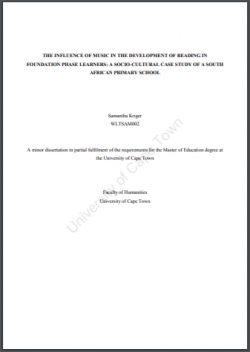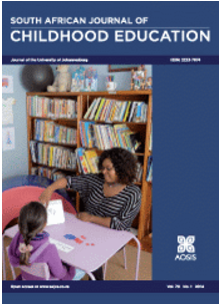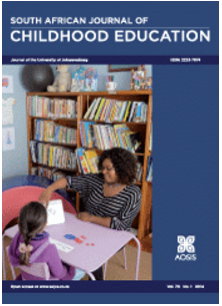Exploring how educators deal with the challenges of teaching foundation phase learners with Fetal Alcohol Spectrum Disorder

Type
Thesis
Authors
Category
ECCE, Foundation
[ Browse Items ]
Publication Year
2015
Publisher
North West University, Potchefstroom, South Africa
URL
[ private ]
Pages
108 p.
Subject
Early childhood education, Primary education, Early childhood development, Behavioural problems, Cognitive problems, Developmental milestones, Teachers, Educators, Emotional problems, Fetal Alcohol Spectrum Disorder, FASD, Inclusive education, Learners
Abstract
The aim of this study was to explore and describe how educators deal with the challenges of teaching foundation phase learners with Fetal Alcohol Spectrum Disorder (FASD) in the Cape Peninsula and Cape Winelands of the Western Cape, South Africa (SA). A literature review was conducted in order to understand the various concepts that formed part of the research problem. The literature study focused on the causes of FASD as well as the physical, cognitive and behavioural symptoms of FASD. An investigation was done into the development of the neurologically typical child between the age of 7-9 years in terms of the development of motor skills, behavioural development, emotional development, social and cognitive development. As the study was done within a South African context with a unique political history, it was found necessary to explore how educators deal with Inclusive Education as per Education White Paper 6 in local schools. In this regard, the researcher focussed on barriers to Inclusive Education and how these have contributed to challenges educators experience when implementing Inclusive Education. Internationally, educators have adopted various strategies on how to deal with the challenges of teaching learners with FASD. The researcher explored these strategies in the literature review with the purpose of verifying findings from the study with the literature review. Due to the nature of the study, a qualitative approach was employed. The researcher made use of a qualitative descriptive design as this design brought together the focus and described how educators deal with the challenges of teaching learners with FASD. Participants were selected by means of non-probable purposive and convenience sampling. A semi-structured interview and two focus group discussions gave participants opportunities to explain how they deal with the challenges of teaching learners with FASD in the foundation phase. The researcher made use of an independent transcriber to transcribe the data verbatim. The researcher analysed the data by means of Tesch‘s method of data analysis. Main themes and subthemes were identified where after the researcher tried to find the most descriptive quotes to describe the meaning the participants attached to how they deal with the challenges of teaching foundation phase learners with FASD. The findings showed that educators implement their experiences gained over years to help them deal with the challenges that teaching learners with FASD in the foundation phase pose to them. Educators apply basic teaching procedures, constructively keep learners occupied with varying activities, they continually repeat the curriculum and instructions and build positive relationships with the learners. The importance of support from fellow colleagues, other professionals and family members, as well as spending time on leisure activities have been emphasised.
Number of Copies
1
| Library | Accession No | Call No | Copy No | Edition | Location | Availability |
|---|---|---|---|---|---|---|
| 1 | Potchefstroom, North West Province, South Africa | Yes |


